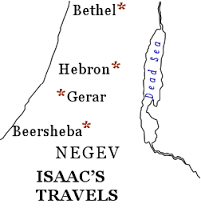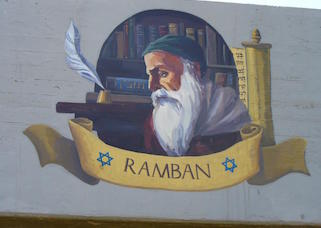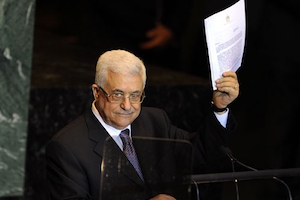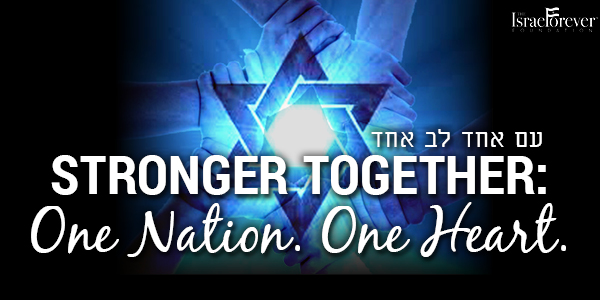ALIYAH SHIPPING GUIDE INTRODUCTION
This guide is designed to help you make the best choices regarding your shipment of household goods to Israel. Educate yourself in advance of your move--use this guide, the Kef International website (www.kefintl.com), Nefesh B’Nefesh, get advice from people who have already shipped, and make sure to call KEF for a free consultation with Rabbi Adam Perlman, our expert shipping adviser. You can reach Rabbi Adam Perlman at adam@kefintl.com or call his number at 1-866-425-5224 ext. 152
The Dead Sea 2
1 OLEH RIGHTS Olim Chadashim have rights to three tax-free shipments within three years of their Aliyah. They are exempt from customs taxes for household goods, though they still pay port fees, port taxes, and VAT of 17% on services in Israel such as customs clearing and delivery. Some items are taxable, such as tiles, more than one of any appliance, exercise equipment, and outdoor furniture. Clothing, furniture, books, linens, toys, kitchen items, media, personal effects, one of each appliance, two computers, and two TV’s are exempt from customs taxes. Goods imported tax-free must remain in your possession for 6 years from the date of import. Gas grills can be imported, though they must be new, and they require special procedures and extra payments which can delay the clearing of your shipment through Israeli Customs.
IMPORTING A CAR An Oleh Chadash has the right to buy or import one car or motorcycle with reduced taxes within three years of making Aliyah. Unlike household goods which are tax-free, vehicles have reduced tax, 76% instead of 125%. Unless you want an expensive car--over $45,000 in Israel, one that you can’t find there, or one that you are sentimentally attached to, it is best to buy or lease new or 2nd hand in Israel. A tax-reduced vehicle must remain in your possession for four years. Confirm with your shipper that your car has the features required for import.
3 VOLUME ESTIMATE The first stage in getting a shipping quote is an onsite volume estimate/survey. This is free of charge and without commitment. Many companies will not do a free survey for you, but it is Kef’s practice to do a free onsite survey, whenever possible. The survey is best done 3-5 months before you move. If you are not sure what you will ship, tell the surveyor that some items are certainly going to be shipped and some items will maybe be shipped--and request two quotes. You will receive a survey report--an important reference for you and your shipper--with estimated volumes of each item or group of items and a total. Often, if estimated volume is under 600 cubic feet, you will be quoted a shared container shipment (i.e. a lift), 600-1000 cft, an exclusive 20’ container, 1200-2000 cft, a 40’exclusive container, or a 40’ high cube container (capacity about 2,200 cft). If you are undecided about how much to take, get quotes for various options.
Volume and Weight
Though volume is the main factor determining the type and cost of your shipment, weight comes into play for heavy items--a large piano, a safe, many boxes of books, or high end appliances. Domestic trucking is charged by weight, so shipments that begin far from major ports have a weight component. Estimate shipping weight by multiplying the cubic footage by 6.5 lbs/cft.
Medium box, 3.5 cubic feet, 23 lbs. 3 seat couch, 80 cft, 520 lbs. 1-2 bedroom apartment, 1,000 cft, 20’ container, 6,500 lbs. 4-5 bedroom home, 2000 cft, 4
40’ container, 13,000 lbs.
TYPES OF SHIPMENTS 1) A shared container shipment (Less Than Container Load or LCL) shares a 40’ container with other shipments. 2) An FCL, full container load, is an exclusive container, 20’ or 40’ long for larger shipments.
Shared Container Shipments (LCL) Shared containers are for smaller shipments. Kef normally packs all of your goods, though you can choose to pack non-breakables. Kef then brings the packed goods back to the warehouse, where they are loaded and sealed onto wood pallets or into wood crates. This separates and protects your goods and makes them easier to move. It adds 10%-25% to the size of your shipment. Your costs are based on gross or bruto volume, the final measurements, after crating or palletizing, before loading into the container. 5
Rates per cubic foot for a shared container load are higher than for an exclusive container. Your quote will provide a rate for volume above the estimated or minimum volume. Some companies load shared containers “loose”—not on pallets or in crates. Though loading “loose” will make your shipment smaller and, therefore, less expensive, risk of loss or damage increases significantly. Cheap solutions are expensive, so make sure you choose a reliable shipper.
The timing of partial containers, especially small ones, is very different than for exclusive containers; partial containers take longer and are less predictable. Though partial containers take just a day to pack and pickup, there are possible delays down the line. At origin, they wait for sufficient cargo to consolidate in a large container, and in Israel, after waiting to unload the container at the port, they wait to fill the delivery truck.
Exclusive Container Shipments (FCL)
Exclusive container shipments are for larger amounts of furniture and household goods. Unless there is difficult access or you need storage at origin, exclusive containers are loaded at residence, a “live load.” In some places, standard procedure is to pick up your goods in a truck and load the container at the warehouse.
If you send the smallest container, a 20’, it not uncommon that on packing/loading day, you feel the need to send more than will fit. By then it is usually too late to switch to a larger container---you must leave things behind or send a second shipment. To avoid this, prioritize and label goods in advance of the pickup, so important items are loaded first, and things that don’t fit are less important. Just as it is impossible to 6 guarantee timing, it is also not possible to guarantee what will fit into a container.
If your estimated volume is near the capacity of a 20’ container, and you may want to add more items, and move up to a 40’ container. Similarly, if your volume estimate is over 500 cubic feet and you may want to add more items, consider sending a 20’ container. Storage options for an exclusive container are pricey.
Exclusive containers are safest, since they involve the least handling of your goods and the least opportunity for damage or loss. They are locked at origin and opened only at destination.,
STORAGE
Decide in advance, and let us know, if you need storage-- there are storage options on both sides of the ocean. Partial containers are easier and cheaper to store, both before loading into the container at origin or after unloading from the shared container in the port in Israel. They have 2-4 weeks at origin and 28 days of free storage at the port in Israel and reasonable rates after that. Exclusive containers have only 2-4 days free storage at the destination port.
Because of the high costs of leaving a container at port, plan to arrive in Israel at least a few days before the container is scheduled to arrive, in order to prepare and submit your documents for customs clearing.
7 MARINE INSURANCE
Marine insurance is not included in shipping quotes. You pay as a percentage of the replacement value of your goods in Israel and have a choice of deductibles. All-risk coverage with a $500 deductible might cost 2.00% of the insured value. To insure for $30,000, your cost will be $600. The deductible is one time for the whole shipment, not per item. You can insure self-packed (PBO, packed by owner) boxes only for loss and theft up to $300, and only if you list the contents beforehand. If you want to insure for damage as well, do not seal them-- let the packers inspect and seal. Make sure your shipper uses a reliable marine insurance provider who will not give you problems in the event of a claim.
Kef has worked with the best for over 30 years.
WHAT TO SHIP?
Consider the cost and quality of your goods, the amount of space in your home in Israel, and the type of shipment you are sending. Shipping is not inexpensive, so don’t ship junk-send things you value.
Costs are determined by size, so large items of no great quality are better left behind. Large ovens, ranges, washers, dryers, and high-end refrigerators are worth bringing, if you can fit them in your new home. Computers are worth shipping, if you already own them. TV’s, only if high end and compatible with the PAL-eg system in Israel. 8
SHIPPING QUOTES
All shippers use 3rd party shipping agents. This is important to understand. Israeli companies use a shipping agent at origin (e.g. North America) for packing. A North American company uses an agent in Israel for customs clearing and delivery. Signing a contract with a company based in Israel can help avoid surprise charges--and having to deal with unfamiliar Israeli agents with limited English and limited experience in dealing with Olim. Kef is happy to help you compare “apples with apples” between competing quotes.
Netanya 9
Since companies use different terminology in their quotes, you should focus on the bottom line--how much you will pay for services provided. Study the “not included” section carefully to see what services are excluded and verify that port fees, port taxes, and terminal handling charges are included. Review your quotes and ask questions if anything is unclear.
Beware of surprisingly low quotes—they may well have hidden charges or offer sub-par service. If you have any questions, call or email Rabbi Adam Perlman at Kef International and he will gladly help you. You can reach Rabbi Adam Perlman at adam@kefintl.com or call his direct number at 1-866-425- 5224 ext. 152.
TIMING
Timing of international shipments is never certain. Exclusive container shipments are faster and more predictable than shared container shipments. Shipping an exclusive container (FCL) takes at least 4 weeks door to door (more from the West Coast). Partial containers take longer, 7-11 weeks, and have less certain timing.
PACKING
Packing takes place at your home. Most quotes include all packing and packing materials. Some offer partial packing, where you are responsible for non-breakables such as clothing, books, toys, and linens. Fragile or expensive items may require custom crating at additional cost, to assure safe passage and allow proper insurance coverage. Packing is done in one day for shared shipments and 20’ containers.
Larger or more complicated shipments take 2-3 days. Goods you pack yourself are listed as PBO (packed by owner) on the packing list and cannot be insured for damage; make sure breakables and furniture are professionally packed. Packing is done in one day for shared shipments and 20’ containers. Larger or more complicated shipments take 2-3 days.
CUSTOMS CLEARING IN ISRAEL
Olim receive a teudat zehut and teudat oleh from Nefesh B’Nefesh. You no longer need to go to customs yourself--NBN will open a file at customs for you. You will need to provide us with scans of documents, including passports, your new Israeli documents, and signed customs forms. Kef provides you with clear instructions at each stage of the move so you can have peace of mind throughout the moving process.
DELIVERY IN ISRAEL
Once cleared through customs, KEF arranges delivery to your residence. Exclusive containers take a few days for that process—partial containers take longer. Standard delivery includes placing goods where you want them, unwrapping furniture, assembling simple used furniture that was disassembled at origin, and discarding debris. Your quote is based on normal access, up to two floors without an elevator and parking within 25 yards of the house entrance. It is best to have 2 or more people at delivery, one to mark the list for items being delivered and one to show where to put them. 10 11
EXTRA COSTS
Difficult access at destination and storage are common reasons for extra charges. Less common causes are customs and security inspections, strikes, extreme weather and wars..
DECIDE ON A SHIPPER
Aliyah is a stressful time. A reliable and responsible shipper will make your transition that much easier. Reliable communications, integrity, and a commitment to service are central to a good shipping experience. With expert advice and service throughout your move, Kef allows you peace of mind from door to door.
We look forward to being of service!
Achziv Beach 13
KEF INTERNATIONAL (established in 1979) is the oldest of the relocation companies in Israel specializing in Aliyah. Kef is based in Jerusalem with toll-free access from the USA, Canada, France, and the UK. Staffed and managed by olim from the United States, Kef knows the Aliyah process intimately. Our expertise and experience allow us to provide the highest standard of service on international moves.
More than 6000 customers have used KEF for their international moves and shipping. Whether you are moving to or from Israel or anywhere in the world, count on Kef for thorough information, expert advice, and the highest level of control throughout your relocation. With easy access and quick response time, KEF is with you all the way. -
Our Services Include:
Free onsite volume estimate of household goods
- Pre-move consulting
- Packing and containerization of household and newly-purchased goods,
- Receiving deliveries of new items at our origin warehouse
- Secure storage in Israel and abroad
- Shipping by air or sea
- Marine insurance
- Customs clearing - Home delivery
- Help in expediting insurance claims.
Our Services Include: 12 13
Expertise, Control and Responsibility. For 39 years, Kef has maintained secure relationships with top performers in packing, shipping, marine insurance, customs clearing, home delivery, installation and service contracts.
Full Disclosure. Kef provides a comprehensive contract in plain English, detailing likely and possible fees--clear and complete, no ambushes or ambiguities.
Household Goods. Kef arranges onsite estimates, expert packing and pickup of your household goods anywhere in the world.
Marine Insurance. Kef offers the best marine insurance coverage available, maximizing your security and expediting claims. We offer a variety of deductibles, and our policies are extendable in commercial or port storage.
Customs Clearing. KEF makes clearing as easy as possible. No need to go to the port--let our top-notch customs clearer's get the best results for you!
Home Delivery. Our truckers are not only expert movers, they are polite, understanding and cooperative, as well. Kef informs you in advance about everything from special conditions that add costs to appropriate tipping.
Storage. Kef arranges secure short and long-term storage and insurance. We offer partial delivery and partial storage, at the port and in private warehouses.
Appliances, Furniture, and Household Goods. 39 years of experience allows us to provide accurate information about which products are worth importing, which can be serviced and the mechanics of getting them into your home. 14
No Pressure, easy communication, transparency and service.
Low Costs. Kef gives competitive prices and the highest level of service for packing, shipping, insurance, destination services and appliances.
Consideration and Integrity. We speak your language and know the kind of service you expect.
Hassle-Free. Give yourself the service you deserve. Allow Kef professionals to handle all the details for you at fair and competitive prices.
SERVICE IS OUR PASSION.
CONTACT US: USA: 1-866-425-5224 (toll free) Canada: 1-866-425-5224 (toll free) England: 0 203 129 6901 Israel: 02-673-5043 shipping@kefintl.com www.kefintl.com



















